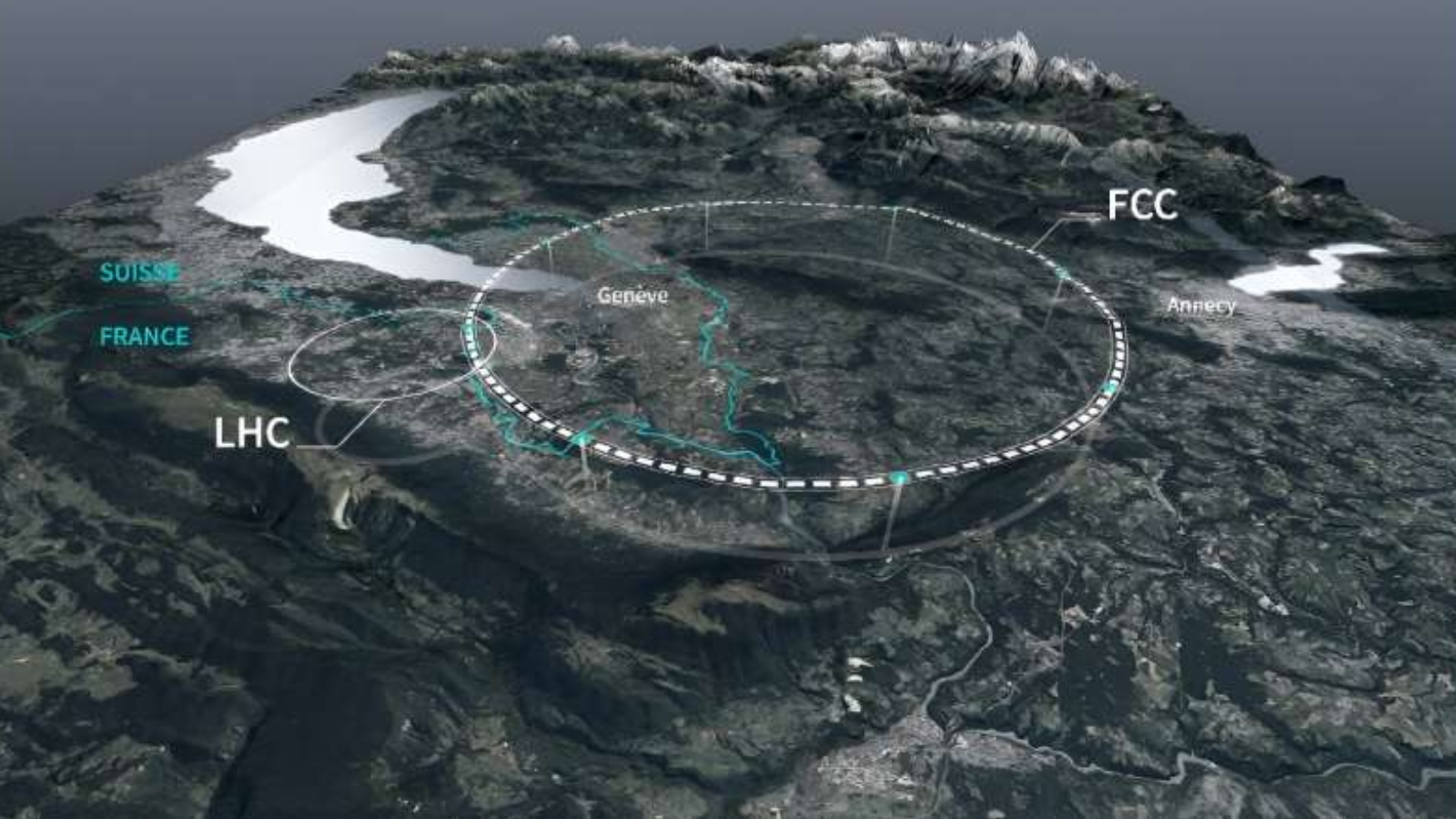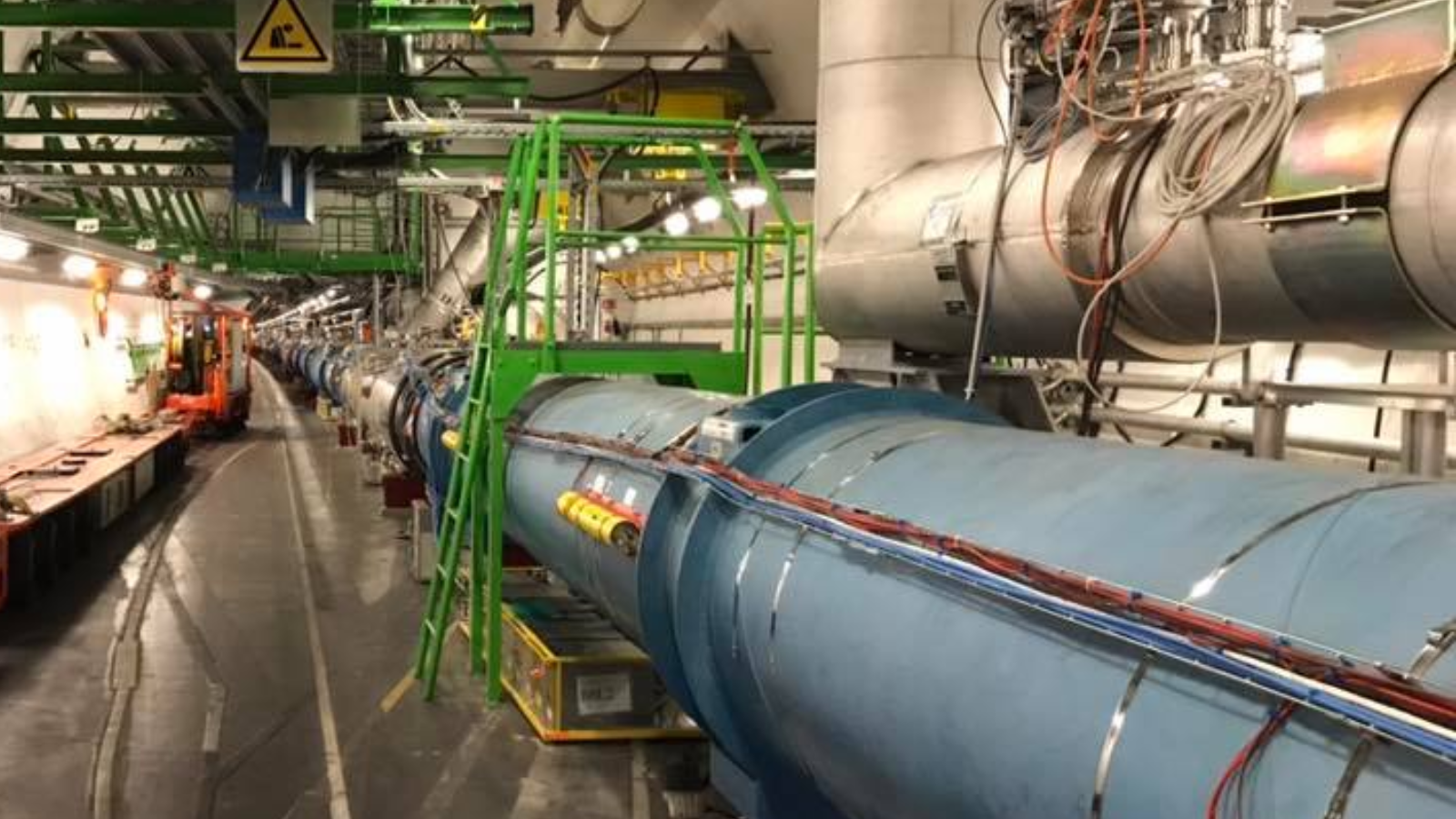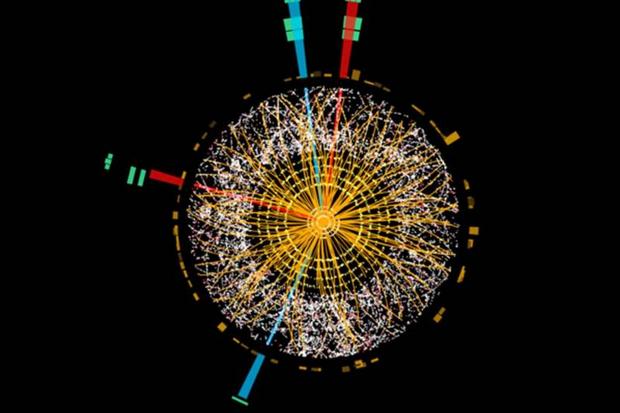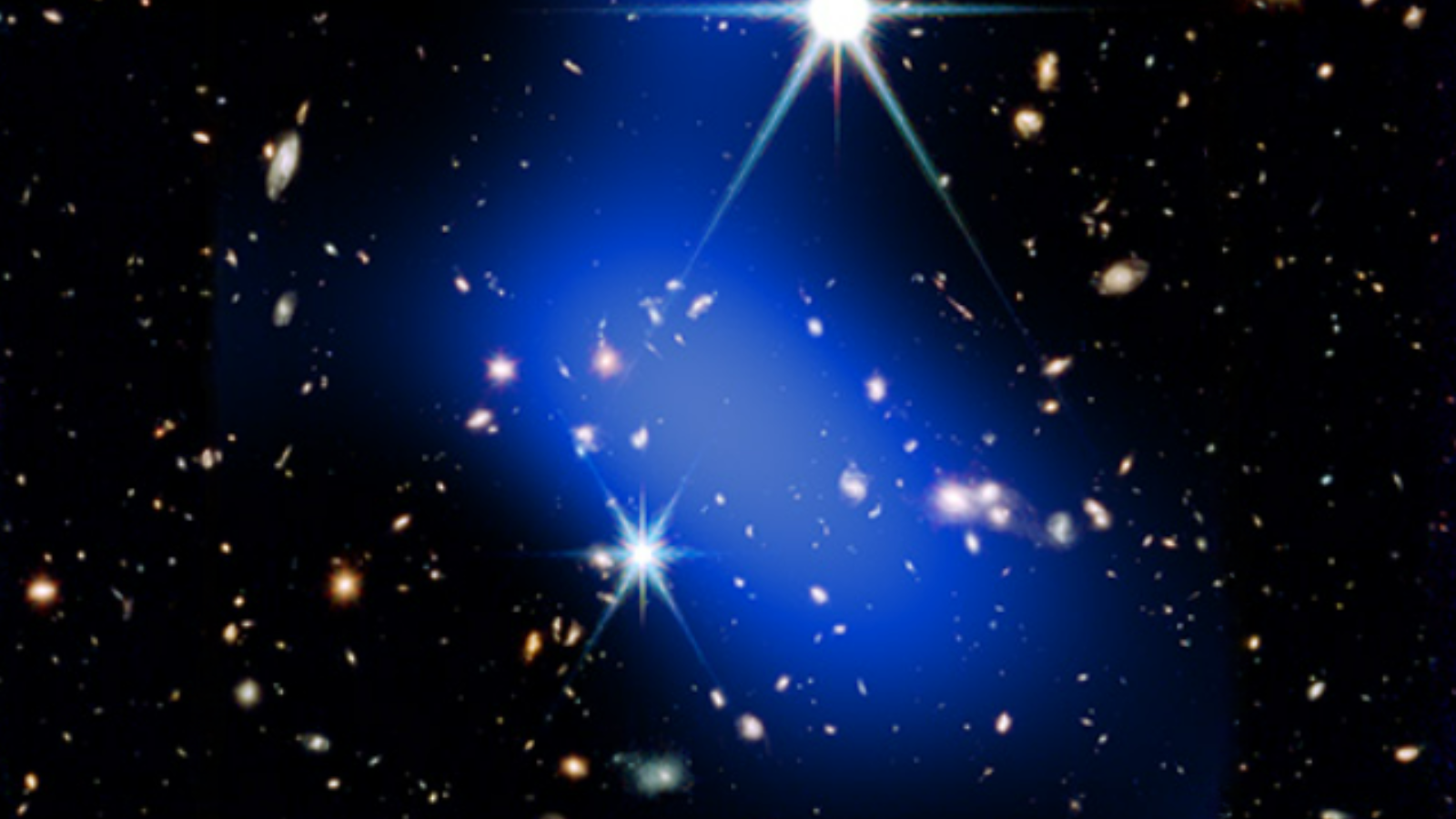How the Large Hadron Collider's successor will hunt for the dark universe
CERN has revealed plans for the Future Circular Collider, which will dwarf the Large Hadron Collider in size and power and hunt for the missing 95% of our universe.

Planning is well underway for the successor to the world's most powerful particle accelerator, the Large Hadron Collider (LHC).
The new "atom smasher," named the Future Circular Collider (FCC), will dwarf the LHC in size and power. It will smash particles together with so much energy, in fact, that scientists say it may be capable of investigating our universe's most mysterious entities: Dark energy and dark matter.
LHC operators at CERN revealed the results of a "midterm review" of their FCC Feasibility Study to the press on Monday (Feb. 5). The feasibility study began in 2021 and is set to conclude in 2025. The findings thus far constitute three years of work, with scientists and engineers from across the globe determining the placement of the new accelerator's ring, the implementation of the FCC facility, concepts for detectors and funding aspects.
The FCC will run under the jurisdiction of France and Switzerland, just like the LHC currently does, but the future accelerator will stretch 56.5 miles (90.7 kilometers), making it over three times the length of CERN's current particle accelerator, which is 16.8 miles (27 kilometers) long. The LHC is the largest and most powerful particle accelerator in the world.
Related: Dark matter may be hiding in the Large Hadron Collider's particle jets
The FCC will operate in the same way as the LHC, accelerating charged particles around a loop, using superconducting magnets, then smashing them together as they approach the speed of light.
Scientists can probe fundamental physics by observing showers of secondary particles created when particles like protons slam together. But whereas the LHC can attain energies of around 13 terra electronvolts (TeV) when operating at full power, CERN says the FCC should be able to reach energies as great as 100 TeV.
Breaking space news, the latest updates on rocket launches, skywatching events and more!
"Our aim is to study the properties of matter at the smallest scale and highest energy," CERN director-general Fabiola Gianotti said at the interim report presentation in Geneva on Tuesday (Feb 6.)
Why do particle accelerators need more power?
The crowning achievement of the LHC thus far is undoubtedly the discovery of the Higgs Boson, the force-carrying particle of a field called the Higgs Field, which permeates the universe and dictates most other particles' masses.
The breakthrough sighting of the Higgs Boson by two LHC detectors was announced on July 4, 2012, and is credited with completing the Standard Model of particle physics, which is humanity's best description of the universe, its particles and their interactions on a subatomic scale.
Yet, the Standard Model still requires some tweaking — and, since 2012, scientists have been using the LHC to search for physics beyond the model to make those adjustments. Success has been limited. This search will get a boost when the LHC's high luminosity upgrade is completed, which will mean the particle accelerator can perform more collisions and offer scientists more opportunities to spot exotic physics.
The two main outliers of the Standard Model (aka, why some of those tweaks are necessary) are dark matter and dark energy.
Sometimes collectively known as the "dark universe," these phenomena constitute such large mysteries for scientists because dark energy accounts for around 68% of the universe's energy and matter, while dark matter accounts for around 27% of these continents. But neither can be seen because they don't interact with light, and no one has been able to pin them down through other forms of direct detection, either. That means that the matter and energy we understand and can account for comprise no more than 5% of the universe's contents, and we have little idea what around 95% of the universe actually is.
And probing these aspects of the universe may require smashing particles together with much more energy than the high-luminosity LHC is capable of.
To begin with, dark matter can't be "standard matter" like the atoms that make up the stuff we see around us on an everyday basis, like stars, planets and our bodies. Remember how it doesn't interact with light? Well, protons, neutrons and electrons — collectively known as "baryons" — do. So, dark matter must be something else.
Currently, the only way scientists can infer the presence of dark matter is via its interaction with gravity and the effect this has on baryonic matter and, in turn, light.
Dark energy is even more problematic. It's the force that scientists see driving the acceleration of the universe's expansion.
It concerns a period of expansion separate from the universe's initial inflation, which was triggered by the Big Bang. After that early expansion slowed to a near halt, in a later epoch, the universe unexplainably started to expand again. This expansion rate is actually speeding up to this day, with dark energy used to account for that action.
Yet, as we've discussed, scientists don't actually know what dark energy is.
To see why that is troubling, imagine pushing a child on a swing. The Big Bang is akin to your first and only push that gets the swing in motion. The swing may keep going for a short while, even without any action from you, then it will come to a half. Then, imagine that it suddenly begins motion again despite you just standing there. And not only that, but it swings faster and faster, reaching higher and higher points. This is similar to what dark energy is doing to the very fabric of space.
CERN hopes the high-energy collisions of the FCC could reveal the nature of this ongoing, late-universe push and the particles that make up dark matter.
However, it will be some time before this future particle accelerator is ready to embark on its investigation of the dark universe.
The timeline and cost of the Future Circular Collider
In 2028, three years after the completion of the FCC feasibility study, CERN member states will convene to decide if the FCC will get the go-ahead. Should the future collider get greenlit, CERN says, construction will begin in the mid-2030s.
The FCC will be completed in stages. The first stage is a electron-positron collider (FCC-ee) that will slam together negatively charged electrons, their positive antiparticle counterparts, known as positrons, and other light particles. CERN adds that FCC-ee should start operations in 2045.
The second machine of the FCC will be a proton colliding accelerator (FCC-hh) sitting alongside the FCC-ee in the same evacuated tunnel buried under the French-Swiss Alps and Lake Geneva. This part would come online no sooner than 2070, according to CERN.
At the CERN press conference, Gianotti laid out some of the costs of the FCC, saying that the first FCC-ee stage alone would cost an estimated $17 billion USD.
CERN's Director general justified the cost by adding that the FCC is the only machine that would allow humanity to make the big jump in studying matter needed to crack the secrets of the dark universe.

Robert Lea is a science journalist in the U.K. whose articles have been published in Physics World, New Scientist, Astronomy Magazine, All About Space, Newsweek and ZME Science. He also writes about science communication for Elsevier and the European Journal of Physics. Rob holds a bachelor of science degree in physics and astronomy from the U.K.’s Open University. Follow him on Twitter @sciencef1rst.


